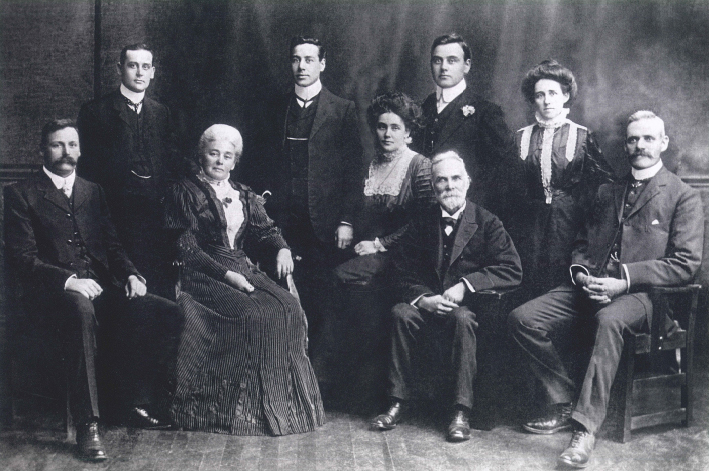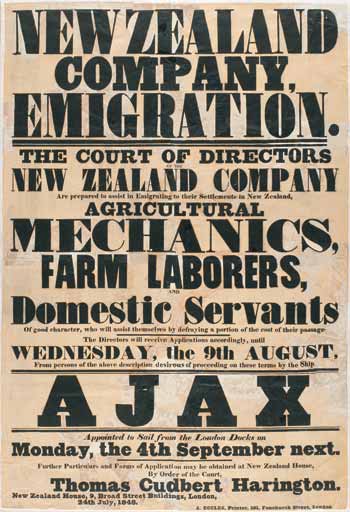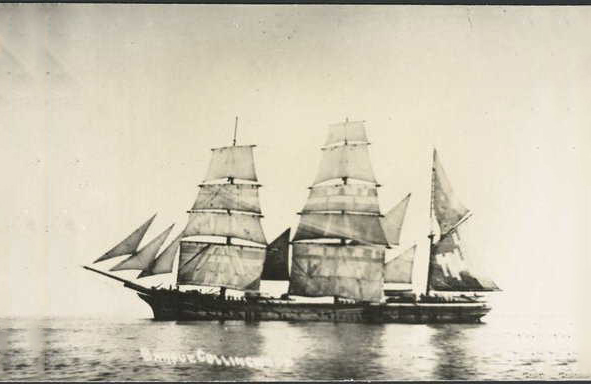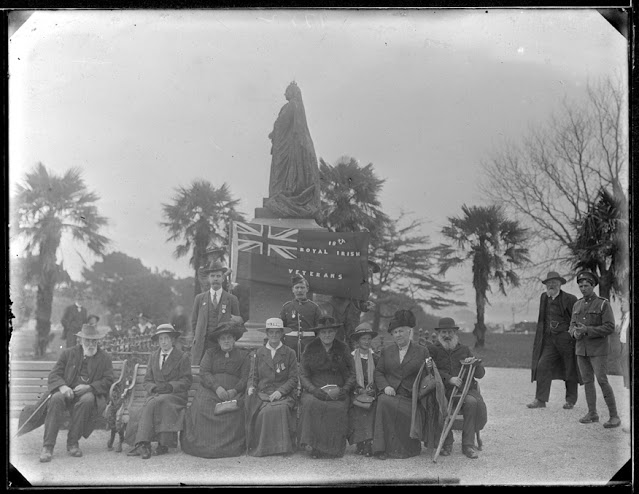Our History
The Beginning

A rather imperious looking Isabella poses with David and their seven adult children.
(Back row L-R) David Morton, Thomas John Eden, Laurence Albert, Elizabeth Dulcibella
(Front row L-R) William George (named after David’s friend and business partner
George William), Isabella Joy, Esther Millicent May, David senior, Almond Edmund
The Dunningham family name can be traced back nearly 400 years, thanks to the Essex Parish registers beginning in 1564 A.D. to the small hamlet of Beaumont near an inlet in Essex that leads to the North Sea. If John Dunningham, one of the current Dunninghams directors and a direct descendent had his DNA tested, it would reveal his Scandinavian heritage.
The Anglo-Saxon Danes plundered and then settled in Essex in the 5th century before its (by then) Romanised Christian people were once again invaded and conquered by the Vikings in the 9th century.
The Dunninghams were listed in the Parish registers as either farmers or millers, who like so many other agrarian families were tied by land ownership and remained tightly loyal to their local area, venturing 18 kilometres to the town of Colchester on rare occasions to trade and buy supplies.
The trip south and west to London was to many, inconceivably long and seldom undertaken. Today, it’s an easy one hour train ride or 130 kilometre drive down the A12.
By the mid 1800’s, as David Dunningham was growing up, little had changed in Beaumont. The population in 1850 was recorded as ‘just under 400 souls’. This young, ambitious man could not see his future there.
As a sidebar the 2011 census lists Beaumont-Cum-Moze in the Parish of Essex County recording a population of 339 residents.
By 1860 in Britain, the new world was all anyone could speak of. Australia and New Zealand, with the promise of cheap, plentiful land and a warm climate were depicted as lands of riches and glory. Gold had just been discovered in Otago in 1861, sparking an even greater demand for passage to New Zealand.
David Dunningham could not miss seeing the full-page advertisements in his local newspaper placed by Edward Wakefield and his New Zealand Company proclaiming how plentiful and cheap arable farmland was in “Godzone”. While it is true that Wakefield master-minded the mass settlement of British settlers beginning in the 1830’s to New Zealand and New South Wales, historians also note that much of the land purchases in the North Island were bogus and later disallowed by the British Colonial authorities. Hundreds of settlers lost their savings.

Instead of going to prison for blatant fraud, Wakefield went on to greater riches, becoming a member of Parliament for Lower Hutt in 1852. Other advertising campaigns and propaganda pieces were almost as unscrupulous, promising a paradise of coconut palm-fringed, white sandy beaches and warm, sunny weather, free of diseases that plagued Britain at the time.

Turning his back on farming but with the promise of wealth and equal opportunity, David Dunningham, who travelled alone, buys a “Second Class Steerage” ticket (we would call it ‘economy’ today) to sail aboard the 1,105 tonne Iron clipper ship ‘Warwick’, departing the port of London on the 15th January 1867. Assisted passage was offered to those who could attest to having experience as a ‘farm labourer’. David may have taken advantage of his farming background to gain a cheaper ticket, but he had no intention of farming again.
The Iron clipper ship ‘Warwick’ like all its sister ships owned by the Shaw, Savill and Co. line were great profit earners. They were commonly referred to as ‘Settler Ships’. The ship for that voyage was consigned by notable Jewish businessman, David Nathan (who later with his friend and fellow benefactor John Logan Campbell, went on to form the Auckland Savings Bank), which meant the voyage packed to the gunnels with supplies, had already turned a handsome profit. The 75 paying passengers were cream on the top.
The 99-day voyage was arduous and during ‘the run to New Zealand’ the second mate was washed overboard in a raging storm. There were no other reported major injuries or fatalities, but notably two babies; one boy, one girl, were delivered.
On Monday, May 6th the Warwick docks at Auckland harbour. Clutching his few possessions and meagre savings, but bubbling with excitement, David sets foot on what will become his home city for life. He is 22 years old.
Young David Dunningham wastes no time finding work and lodgings. Within days, David finds work as a ‘live-in steward’ at the Blue Post Dining rooms. He is smart, a quick study and fancies himself, in the vernacular of the day, as a ‘chancer’ – an entrepreneurial man who sees opportunities and capitalises on them. Within months having learnt all he can, he finds lodgings and employment at the far more salubrious Governor Browne Hotel, on the west side of Hobson Street, a short distance from what will one day be Dunningham House.
Another young man who worked at the Governor Browne as a live-in steward, was also a budding entrepreneur by the name of George William King. In short order the two would become firm friends.
On the 22nd September 1871 at the age of 26, a scant four years after first setting foot on the shores of Aotearoa, David Dunningham, along with his close friend George King, purchase the Governor Browne Hotel from their former employer, David Sheehan. By all accounts, new proprietors Dunningham & King are very successful. David continued his entrepreneurial endeavours by becoming an investor and director of W.L. Rees Co-operative Butchery in 1893 and in 1897 owning and operating a Cartage Company.
Without doubt David Dunningham’s greatest triumph was meeting a ‘very young, pretty lass’ by the name of Isabella Joy Bell, originally from a small village on the outer cusp of Belfast, Ireland. There is no record of how the couple met, but we know they both worshipped at St. Thomas’s Church, an Anglican chapel in the city. It is no stretch to imagine the dashing, young man catching the eye of a demure young woman sitting with her family at worship on a Sunday.
Isabella would have travelled with her family from Ireland, which at the time was suffering gravely from famine. In the ten years, 1841 to 1851, over two million Irish were lost to starvation or for those lucky enough to escape − emigration. Most of the ‘anti-British’ Catholic Irish emigrated to America. It is likely that Isabella’s father was in the British Army, part of a large contingent sent to reinforce troops during the Maori Land Wars (1845 −1872 now known as the New Zealand Wars) that despite the Treaty of Waitangi, signed in 1840, were still being fought at that time, especially in the Waikato region. Nearly two thirds of the British Imperial troops were Irish, mostly illiterate young men escaping poverty and starvation.

Regimental records reveal a Private Richard Bell of the 18th Royal Irish Regiment emigrated with his wife and young family in 1863. Isabella Joy would have arrived in Auckland as an inquisitive 11 year old. The 18th, unlike the ill-prepared troops before them, were battle-hardened veterans who were well equipped, well trained and had already seen action in the India uprising of 1857.
The 18th, who were known as ‘Paddy’s Blackguards’ were stationed in Otahuhu and took part in battles along Great South Road and Pukekohe in the Waikato campaign. Private Bell took honourable discharge settling in Auckland in 1866.
David must have impressed Isabella’s parents, despite her father’s intimidating demeanour, because on the 17th of January 1870, Isabella and David were married at The Lady Chapel at St. Thomas’s Church. The blushing bride, and newly Mrs Isabella Joy Dunningham, born in 1852, was only 18 years old.
By all accounts the Dunninghams’ fortunes flourished. In 1882, David Dunningham even travelled to the Waikato to visit with the Maori King Tawhiao. After a satisfactory ‘korero’ he was reported to have left with title to ‘a sizeable piece of land’. Isabella proved to be a worthy wife and partner for David. She was a respected member of the community and the Anglican church, highly supportive of family and friends but was known ‘not to suffer fools’.
In rather quick succession, over the course of ten years, Isabella and David Dunningham had seven healthy children; five boys and two girls, including their third-born − David Morton Dunningham, born 1878.
Extracted from our book "The flavour of New Zealand for 100 years" by Terence Herbert.
